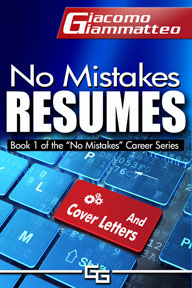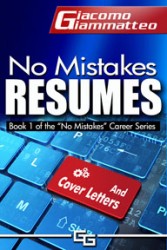Ten Best Words to Put on a Résumé
A while ago, I did a post on the ten words to avoid on your résumé. You can see it here. In that article, I mentioned how many of the “go-to” words people typically use are useless. I’m including a table I used in that post to show you just how ridiculous those words are. After that, we’ll take a look at the ten best words to put on a résumé.
| Phrases Used on Resumes | Maybe you should say this instead? |
|---|---|
| results-oriented | I get nothing done |
| motivated | lazy with low energy |
| self-starter | I need to be prodded |
| detail-oriented | I let things slip through the cracks |
| hardworking | I’m a slacker. You’ll have to watch over me all day. |
| team player | impossible to work with |
| excellent communication skills | barely literate |
| strong leader | ineffectual oaf |
| out-of-the-box thinker | can’t think my way out of a box |
| innovative | haven’t had an original thought in years |
With those words taken from consideration, which words should we use?
There are plenty of choices, but the key is to use them wisely. Construct your sentences so that the combination of words you use has an impact and the right kind of impact. Remember that résumé screeners tend to be a jaded bunch, and as such, they look at every statement with a skewed eye. It’s not enough to say “developed a new quality system within the first six months.” A screener may wonder if that system was any good.

Saying you did something is better than nothing, but only slightly. It’s similar to responsibilities. You have to elaborate and show the screeners that what you did was worthwhile. So while “developed a new quality system within the first six months,” is better than saying responsible for developing a new quality system, it still falls short. But one simple word would improve that statement. “Successfully developed a new quality system within the first six months.” Even better than just stating that it was successful, show the results of that success. “Improved yields by thirteen percent or reduced field returns by six percent.”
The above is especially important if you know what the company is looking for a person to do, and, if you did your homework, you may very well know that. I’m going to list a few (only a few) words that instill a sense of accomplishment, but remember, these words should come with elaboration.
An example of elaboration is the following:
- increased sales in region by $6 million
- increased sales in region by 22 percent, an increase of $6 million
In the first example, all we know is that sales increased by six million dollars. That’s better than losing sales, but if the region normally does $120 million in sales, then 6 million dollars only represents a five-percent increase.
In example number two, the person shows us dollars and percentage increases. That six million dollars is now viewed in a different light because we know it represents a 22-percent increase, a far more impressive accomplishment.
Forbes ran an article a while ago on this same subject, but I didn’t agree with many of their choices. They had too many words like “managed,” “created,” “influenced,” etc. While these words hint at accomplishing something, they stop short. The screener may ask: “created what?” or “influenced what/whom?” Those words didn’t tell us enough. Most words don’t, but the ones below have a stronger, more successful connotation.
| Words to Use | Better |
|---|---|
| built | successfully built (or similar) |
| developed | successfully developed (or similar) |
| increased | increased by what percentage and dollar amount |
| improved | show result of improvement |
| recruited … new… (engineers, sales reps…) | Were they any good? |
| achieved | Successfully achieved (or similar) |
| launched | successfully launched (or similar) |
| negotiated | successfully negotiated (or similar) |
| saved | how much in terms of dollars and percentage |
| under budget | how much in terms of dollars and percentage |
There are many more good words to use—just don’t forget to elaborate. And avoid words like “managed” or “influenced” unless you’re prepared to elaborate and show what/who you managed or influenced and what positive result it had. Saying you managed something or someone is no different than saying you were responsible for it. How does the person screening your résumé know if you did a good job? Give them something they can verify.
Résumés are not easy to write—not great ones. They take careful thought and a lot of revision. It is a representation of you, though, so take the time and do it right. You’ll be glad you did.
And don’t forget—mistakes are not allowed.

If you enjoyed this post, please share.
Giacomo Giammatteo is the author of gritty crime dramas about murder, mystery, and family. And he also writes nonfiction books including the No Mistakes Careers series as well as books about grammar, publishing., and children’s fiction and nonfiction.
When Giacomo isn’t writing, he’s helping his wife take care of the animals on their sanctuary. At last count, they had forty animals—seven dogs, one horse, six cats, and twenty-five pigs.
Oh, and one crazy—and very large—wild boar, who used to take walks with Giacomo every day.
He lives in Texas where he and his wife have an animal sanctuary with forty-five loving “friends.”





















Connect
Connect with us on the following social media platforms.